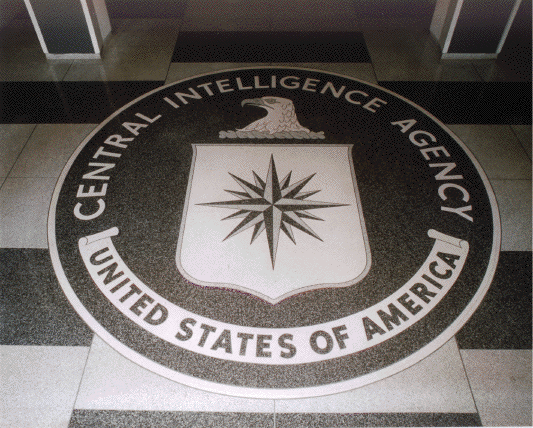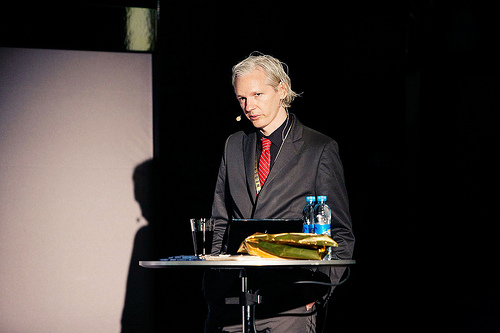
<a href="http://commons.wikimedia.org/wiki/File:Cia-lobby-seal.jpg">Central Intelligence Agency</a>/Wikimedia Commons
Last December, Humam Khalil Abu-Mulal Al-Balawi was invited onto a small US outpost in Khost, Afghanistan. It was Camp Chapman, a CIA-run base, and the Jordanian Al-Balawi was the agency’s hot new asset: a doctor with Al Qaeda ties who could lead Americans to Osama bin Laden’s second-in-command.
But Al-Balawi carried a host of secrets, and an explosive vest. Once he was close enough to a crowd of CIA officers, he blew himself up, killing seven Americans and a Jordanian spy. Follow-up reporting showed he’d never abandoned his Islamist loyalties: He’d instead posed as a double agent. “This is a message to the enemies of the nation,” he said in a video released to Al Jazeera after his death. “To the Jordanian intelligence and the American Central Intelligence Agency.”
In an unusual feat of candor, CIA Director Leon Panetta told reporters Tuesday that the agency had its doubts about Balawi’s loyalties before his attack. In interviews and a press release, Panetta shared details of an internal CIA report on the incident: A Jordan-based officer for the agency “received warnings” that Balawi might try to kill Americans three weeks before he succeeded, but he kept the information to himself, and Balawi was shoddily vetted. One reason: Junior CIA officers were excited about his promises to lead them to Ayman Al-Zawahri, the Egyptian doctor who is bin Laden’s right-hand man.
“The mission itself may have clouded some of the judgments made here,” Panetta told the New York Times.
The agency report stopped short of blaming its own officers for the attack, but Mark Mazzetti of the Times reported details that make a strong case for weak CIA fieldwork on Balawi:
Mr. Panetta said that because he was considered a reliable source, normal security procedures were eased: Mr. Balawi was not subjected to screening at the perimeter of the Khost base, and a large group of C.I.A. officers gathered to greet him when he arrived at the base.
C.I.A. officers became suspicious however, when Mr. Balawi chose to get out of the car on the side opposite the security personnel, who were waiting to pat him down. The security guards soon drew their guns, and Mr. Balawi detonated his suicide vest.
As riveting as the new details are, clues to Badawi’s true loyalties were available to journalists soon after the attack—clues that US intelligence officers probably could (and should) have picked up on. All last winter, Mazzetti turned up new details about Badawi, his life, and his intrigues. But Newsweek got perhaps the most damning evidence, interviewing Badawi’s widow in early January. She made no bones about his work. “My husband was anti-American,” she told the magazine. “So am I.”











